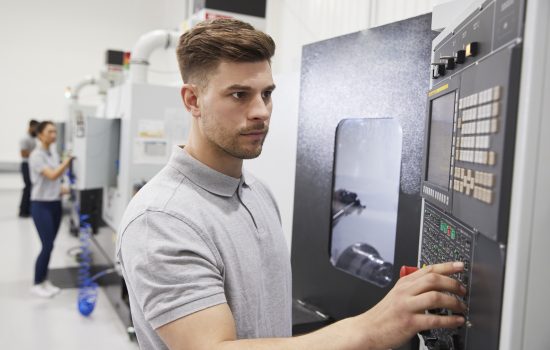AS 13003:2015 Measurement Systems Analysis Training Course
DURATION
1 dayCPD
Equivalent to 8 hoursCERTIFICATES
All delegates will receive a certificate on completion.DELIVERY OPTIONS
This AS 13003 training focuses on Measurement Systems Analysis (MSA), a key technique used to evaluate and improve measurement systems in the workplace.
MSA evaluates the test method, measuring instruments, and the entire process of obtaining measurements to ensure the integrity of data and to understand the implications of measurement error for decisions made about a product or process.
Through the combination of interactive tutorials and workshops, our course will enable the delegates to:
- Use MSA to determine the suitability of measurement systems.
- Perform initial system suitability checks and elements to consider in MSA studies
- Perform Bias and Linearity studies.
- Perform a Repeatability and Reproducibility (R&R) study using both control chart and ANOVA techniques for variable measurement systems
- Perform attribute studies
- Interpret the results in the context of defined acceptance criteria.
- Use the data to improve the effectiveness of the measurement system.
- Practical workshops are designed to reinforce the discussions and topics. This style of delivery makes the course both memorable and enjoyable for participants, ensuring long-term learning.
- Concepts of MSA
- Measurement system elements and their contribution to measurement variation
- Terminology and concepts (bias, linearity, stability, repeatability and reproducibility)
- The existence and measurement of variation
- Variation
- Normal Distribution
- Accuracy and Precision
- Measures of variation (mean, standard deviation and variance)
- MSA Studies – phases, considerations and preparation for the study
- Bias and linearity (overview and methodology)
- Repeatability studies (overview and methodology)
- Measurement system analysis and studies (variable and attribute)
- Repeatability and Reproducibility
- Performance of gauge R&R studies
- Attribute studies
- Interpretation and use of study data (from example data provided)
- Using data for cost-saving (calibration intervals, number of measurements taken etc)
- Quality professionals, practitioners and support staff who require a basic understanding of Measurement system evaluation techniques and the potential benefits of understanding measurement system limitations.
- Personnel with responsibility for design / process engineering who should be requiring MSA studies to help them specify tolerances, production processes and acceptance criteria, and need to understand the information when it is presented.
- Those who are required to support MSA studies, but are not directly responsible for the analysis.
- In house “experts” who need to plan and execute MSA studies and will become the “champions” for the appropriate use of MSA to drive continuous improvement and influence senior management.
Course Delivery
This course is available on a dedicated basis. Please contact our team on 0333 123 9001 to discuss scheduling training on your preferred date at your premises, a venue of your choice or within our virtual classroom.
Customer reviews
Private|21st Oct, 2024
McLaren Automotive Ltd|21st Oct, 2024
SHD Composite Materials Ltd|21st Oct, 2024
QA Limited|18th Oct, 2024
Halfords|18th Oct, 2024
Children's Hearings Scotland|18th Oct, 2024
Handicare Accessibility UK|17th Oct, 2024
Align JV|17th Oct, 2024
Mec Com Fabrications Ltd|17th Oct, 2024
Chirton Engineering|16th Oct, 2024
Environment Agency|16th Oct, 2024
Handicare Accessibility UK|16th Oct, 2024


